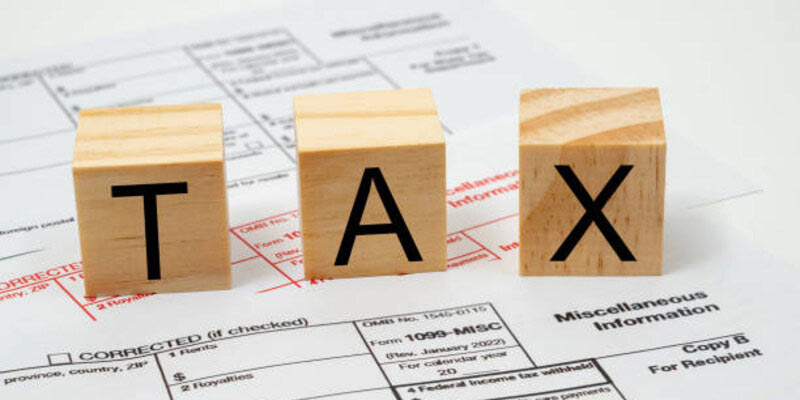Medical vs. Financial Power of Attorney: What You Need to
Oct 04, 2024 By Kelly Walker
Making decisions about your health care and finances is an essential part of life, but sometimes it can be challenging to do so independently. This is why having a legal document that grants someone else the ability to make decisions for you, known as power of attorney (POA), can be beneficial. There are two types of POAs – medical and financial – each with its purpose. Understanding the differences between these two documents will help you decide which one best fits your needs.
Overview of Power of Attorney (POA):
Medical Power of Attorney: A medical POA grants someone the authority to make decisions about your health care if you cannot do so for yourself. This document can be used to give someone the ability to make decisions regarding medical treatment, access medical records, and communicate with medical providers on your behalf.
Differences between Medical and Financial POA:

The main difference between a medical and financial POA is the type of decision-making it grants. A medical POA gives another person the authority to make decisions related to your health care. In contrast, a financial POA gives someone the power to manage your finances when you can no longer do so. Both documents should be in writing, signed by you and a witness, and notarized. Additionally, the person appointed to be your agent must agree to act on your behalf by your wishes.
Advantages of having a Medical POA:
Having a medical POA in place can be beneficial in many different ways. It can give you peace of mind knowing that your health care will be managed the way you want, even if you cannot decide independently. Additionally, it can provide clarity and direction for your agent by outlining specific wishes regarding treatments or procedures.
Advantages of having a Financial POA:
A financial POA can be just as valid as a medical POA. It allows another person to manage your finances if you become incapacitated or unable to do so yourself. This document will outline all the decision-making powers granted, which should help reduce confusion and stress for you and your agent. Additionally, it can help protect you against fraud or misuse of funds.
How to create a Medical or Financial POA:
Creating a medical or financial POA is relatively straightforward. The first step is to consult an attorney about your needs and wishes. Once you have decided what type of POA you need, the next step is to draft the document. This can generally be done with the help of a lawyer, who will be able to prepare and notarize the document. Afterward, you must designate someone to act on your behalf and ensure they understand their responsibilities. Finally, keep the record in a safe place where it can be easily accessed by your agent if necessary.
When to use each type of POA:
A medical POA should be used when you can no longer make decisions about your health care. A financial POA should be used if you become incapacitated or unable to manage your finances independently. In both cases, having a POA will ensure that someone else is empowered to act on your behalf and make decisions according to your wishes.
What happens if you don’t have either type of POA in place:

If you have a medical or financial POA, it can be easier for someone else to manage your affairs. In incapacity or death, family members may need to go to court to obtain guardianship over their health care and finances. This process can be lengthy and expensive, so having a POA can save time, money, and stress.
It will enable someone else to manage your finances. Creating both documents is relatively straightforward, but it’s best to consult an attorney for help drafting and notarizing them. With these documents in place, you can ensure your wishes are respected even if you become incapacitated or pass away.
Conclusion:
Having a medical and financial POA in place is essential to planning for the future. It will allow someone else to manage your health care and finances according to your wishes if you cannot do so yourself. By consulting an attorney, you can ensure that both documents are correctly drafted and notarized so your agent can easily access them if necessary. Creating these documents now will ensure that your wishes are respected even in incapacity or death.
FAQs:
What is the Difference between a Medical POA and a Financial POA?
A Medical POA gives someone else the authority to make decisions about your health care, while a Financial POA enables them to manage your finances.
Who should I designate as my agent for these documents?
It would help if you designated a trusted individual with the capacity and willingness to fulfill your wishes. It’s also essential that they understand their responsibilities as outlined in the document.
What happens if I don’t have either type of POA in place?
If you have a medical or financial POA, it can be easier for someone else to manage your affairs. In incapacity or death, family members may need to go to court to obtain guardianship over their health care and finances. This process can be lengthy and expensive, so having a POA can save time, money, and stress.

All About Personal Finances Products

Europe Travel: Choosing the Right Credit Card

IHG® Rewards Club Premier Credit Card Review

Everything You Need to Know About Understanding Form 1099-MISC

Top Benefits of Life Insurance

Unitranche Debt: An Overview

Essential Credit Cards for the Global Traveler

How to Make Smart Financial Decisions as a Young Professional: Rent or Buy?

Why Is It Easier to Find a Job While Employed?

